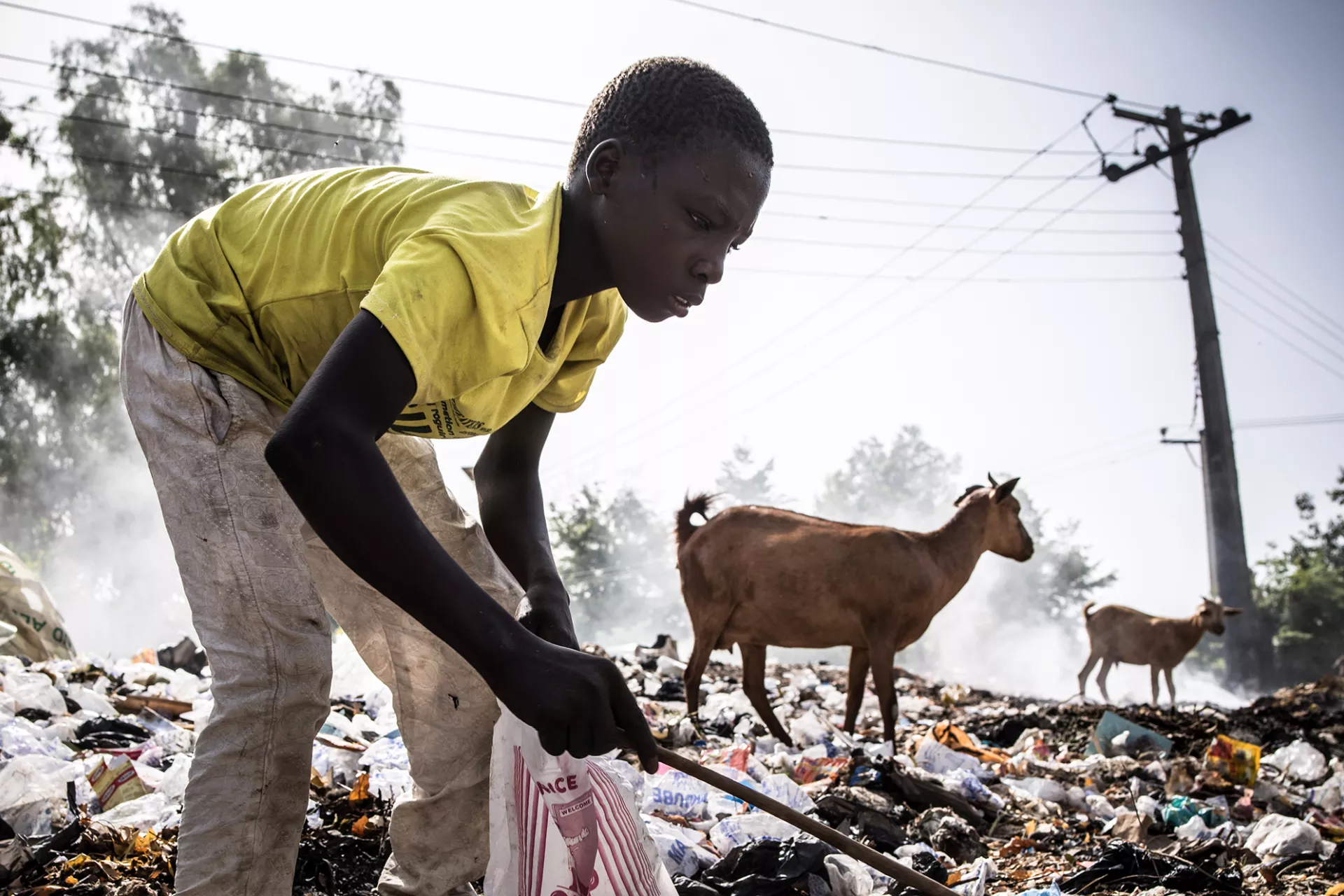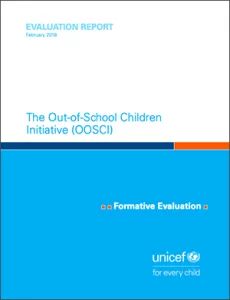Formative Evaluation of the Out-of-School-Children Initiative (OOSCI) 2018
Independent appraisal of the progress that governments have made to enact policies and implement solutions designed to reduce the number of out-of-school children

Highlights
The evaluation aimed to verify the contribution of UNICEF and partners, as part of the OOSC Initiative, in opening up learning opportunities – formal, non-formal or informal – for all children, and to enable the programme to meet its accountabilities to OOSCI donors. The evaluation covers the period 2010 to 2016 (from inception to the publication of the first Operational Manual).
In preparation for the evaluation, the UNICEF Education team articulated a new theory of change for OOSCI. The theory of change depicts that the provision of detailed data and evidence on why children are out of school, coupled with extensive advocacy efforts, will prompt governments to implement changes in their education systems that are necessary to bring children into school, and to achieve the stated goal of OOSCI – a substantial and sustainable reduction in the number of children that are out of school. This theory of change has subsequently been included in the updated OOSCI Operational Manual.

